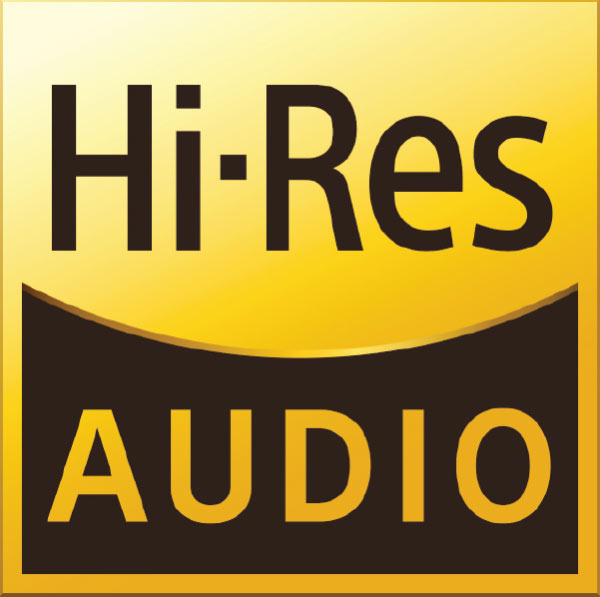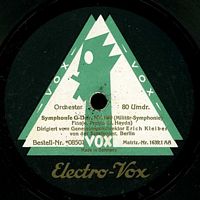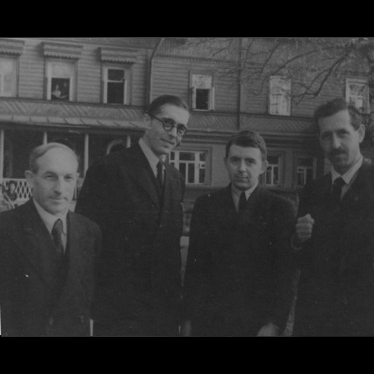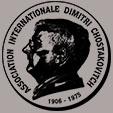Étiquette : Haydn
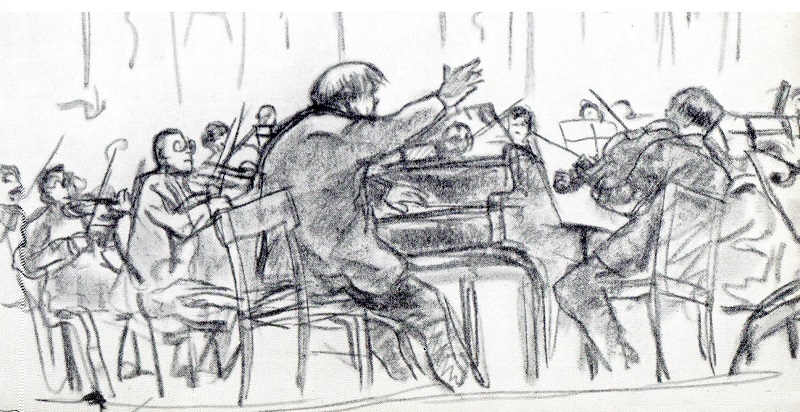
Maestro Editions Lien/Link: https://www.maestroeditions.com/
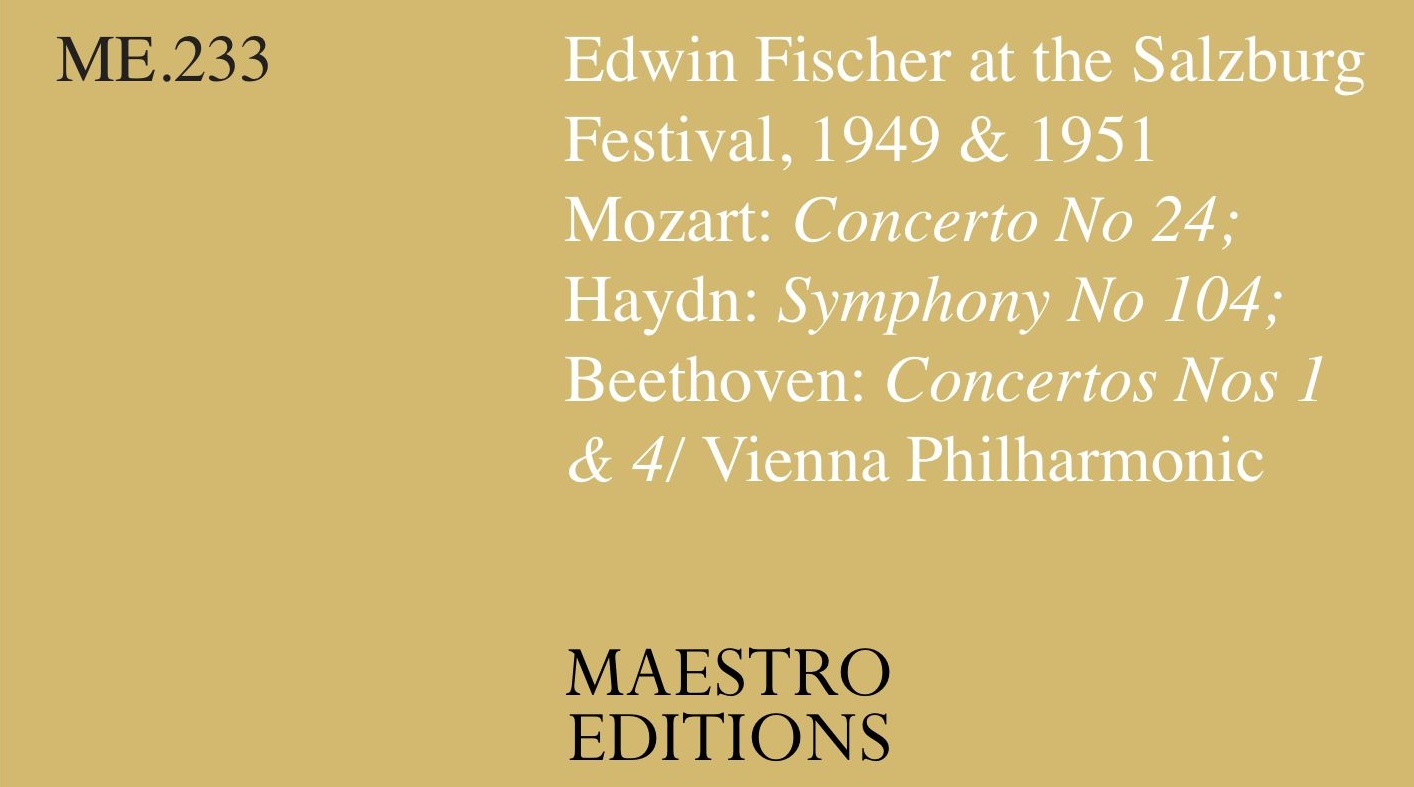
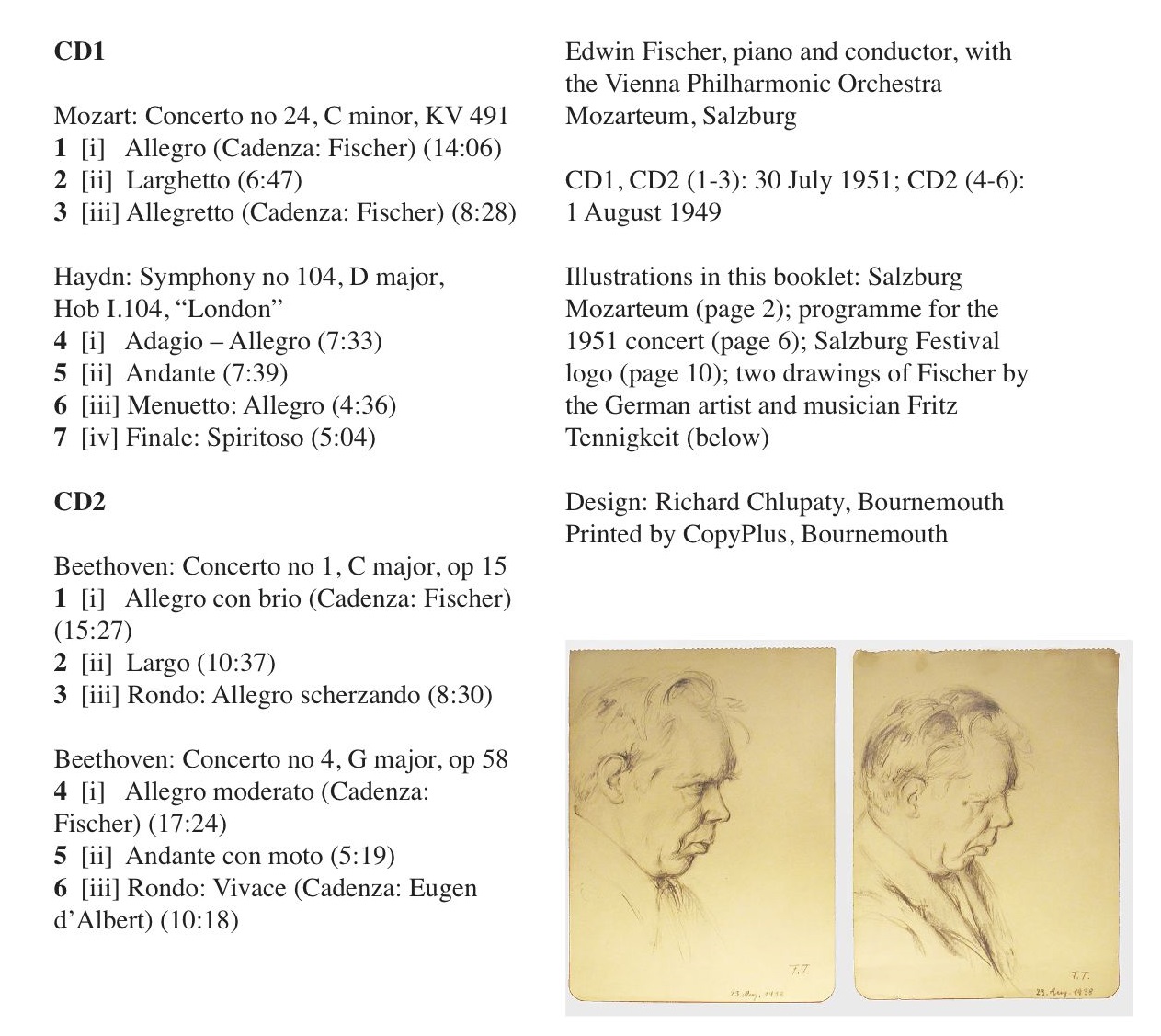
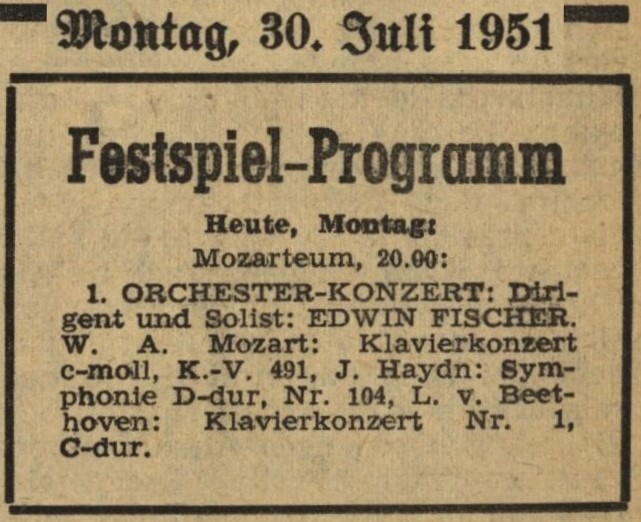
Maestro Editions qui a déjà publié le concert dirigé par Edwin Fischer lors du Festival de Strasbourg 1953, nous offre des inédits d’importance provenant cette fois du Festival de Salzbourg, où Fischer dirige les Wiener Philharmoniker. Il s’agit de la totalité du concert du 30 juillet 1951 (Mozart Concerto n°24 K.491, Haydn Symphonie n°104 et Beethoven Concerto n°1 Op.15) et du seul enregistrement qui subsiste du concert du 1er août 1949 (Beethoven Concerto n°4 Op.58).
Ces enregistrements proviennent des archives de Paul Badura-Skoda (1927-2019), qui les a transmis à Roger Smithson en vue d’une possible publication. Le concert de 1951, enregistré sur bande magnétique avec une très bonne qualité sonore, présentait cependant certains problèmes, notamment il manquait les dernières notes du Concerto de Beethoven et il y avait des distorsions gênantes dans la Symphonie de Haydn. Fort heureusement, il existait une autre source, certes inférieure pour le Beethoven, mais qui était complète, et Andrew Hallifax a su rendre acceptable les saturations dans le Haydn.
Le Concerto n°24 K.491 était le préféré de Fischer, si l’on en juge par le fait qu’il l’a joué quatre fois au Festival de Salzbourg (1947, 1949, 1951 et 1954). Il en existe deux autres enregistrements (London Philharmonic / Collingwood 1937, Royal Danish Orchestra 1954), et si les trois interprétations sont différentes, celle-ci est la plus vivante et on notera également la qualité du dialogue avec les instruments à vent de l’orchestre.
Concernant la Symphonie de Haydn, quoi de mieux que de laisser la parole à Paul Badura-Skoda?: ‘Du vivant de Fischer, j’ai constitué à sa demande des archives sonores avec des enregistrements sur bande de toutes sortes. Un jour, j’ai fait écouter à un chef d’orchestre renommé, sans citer le nom de Fischer, une bande contenant une retransmission radio du concert du Festival de Salzbourg au cours duquel le maître Edwin avait dirigé la Symphonie en ré majeur n°104 de Haydn. Celui-ci l’écouta d’abord à contrecœur, puis avec grand intérêt. ‘C’est magnifique, je ne l’ai jamais entendue aussi magistralement’, s’exclama-t-il. ‘Qui dirige ? Toscanini ?’. Il a été plus qu’étonné lorsque je lui ai dit qu’il s’agissait ‘seulement’ du ‘pianiste-chef d’orchestre’ Edwin Fischer. Je n’ai pas pu assister à un seul des concerts que Fischer a donnés avec son propre orchestre de chambre, mais ses concerts avec l’Orchestre Philharmonique de Vienne pendant le Festival de Salzbourg sont restés gravés dans ma mémoire, et l’Orchestre Philharmonique lui-même ne les a pas oubliés’.
L’enregistrement du Concerto n°1 Op.15 de Beethoven est un événement, car la seule version que l’on connaissait jusqu’à présent (BPO 1943) est très déficiente sur le plan sonore, et l’interprétation spontanée (selon Badura-Skoda) de Fischer nous confirme qu’il était dans un grand jour. Le Concerto n°4 Op.58 provient de disques à gravure directe de qualité variable, mais le premier mouvement est quand même satisfaisant.
Notons enfin que le travail de restauration effectué par Andrew Hallifax est très respectueux de l’interprétation de Fischer. Cet ingénieur du son est connu pour les très beaux reports qu’il a effectués pour le site ‘Centre for the History and Analysis of Recorded Music’ ainsi que pour le label APR.
____________
Maestro Editions, which has already published the concert conducted by Edwin Fischer at the 1953 Strasbourg Festival, is now offering us important previously unreleased material from the Salzburg Festival, where Fischer conducts the Wiener Philharmoniker. It is comprised of the entire concert of 30 July 1951 (Mozart Concerto No. 24 K.491, Haydn Symphony No. 104 and Beethoven Concerto No. 1 Op.15) and of the only surviving recording of the concert of 1 August 1949 (Beethoven Concerto No. 4 Op.58).
These recordings come from the archives of Paul Badura-Skoda (1927-2019), who lent them to Roger Smithson for possible publication. The 1951 concert, recorded on magnetic tape with very good sound quality, nevertheless presented certain problems, especially the last notes of the Beethoven Concerto were missing and there were annoying distortions in the Haydn Symphony. Fortunately, there was another source, admittedly inferior for the Beethoven, but which was complete, and Andrew Hallifax was able to make the saturations in the Haydn acceptable.
Concerto No. 24 K.491 was Fischer’s favourite, judging by the fact that he played it four times at the Salzburg Festival (1947, 1949, 1951 and 1954). There are two other recordings (London Philharmonic / Collingwood 1937, Royal Danish Orchestra 1954), and although the three interpretations are different, this is the most lively, and the quality of the dialogue with the orchestra’s wind instruments is also noteworthy.
For the Haydn’s Symphony, what better way than to let Paul Badura-Skoda have his say?:’While Fischer was still alive, I compiled a sound archive with all kinds of tape recordings on his behalf. Once, without mentioning Fischer’s name, I played a tape to a well-known conductor which contained a radio broadcast of the Salzburg Festival concert at which Master Edwin had conducted Haydn’s D major Symphony No. 104. He first listened reluctantly and then with great interest. he exclaimed: ‘That’s marvellous, I’ve never heard it so masterly. Who is conducting? Toscanini?’. He was more than astonished when I told him that it was ‘only’ the ‘conducting piano player’ Edwin Fischer. I was never able to attend any of the concerts that Fischer gave with his own chamber orchestra, but I still have vivid memories of his concerts with the Vienna Philharmonic during the Salzburg Festivals, and the Philharmonic itself has not forgotten them either’.
The recording of Beethoven’s Concerto No. 1 Op.15 is an event, because the only version we knew of until now (BPO 1943) is very deficient in sound, and Fischer’s spontaneous interpretation (according to Badura-Skoda) confirms that he was on a great day. Concerto No. 4 Op.58 comes from transcription discs of variable quality, but the first movement is nonetheless satisfactory.
Finally, it should be noted that the restoration work carried out by Andrew Hallifax is very respectful of Fischer’s interpretation. This sound engineer is renowned for the fine transfers he has produced for the Centre for the History and Analysis of Recorded Music website and for the APR label.
